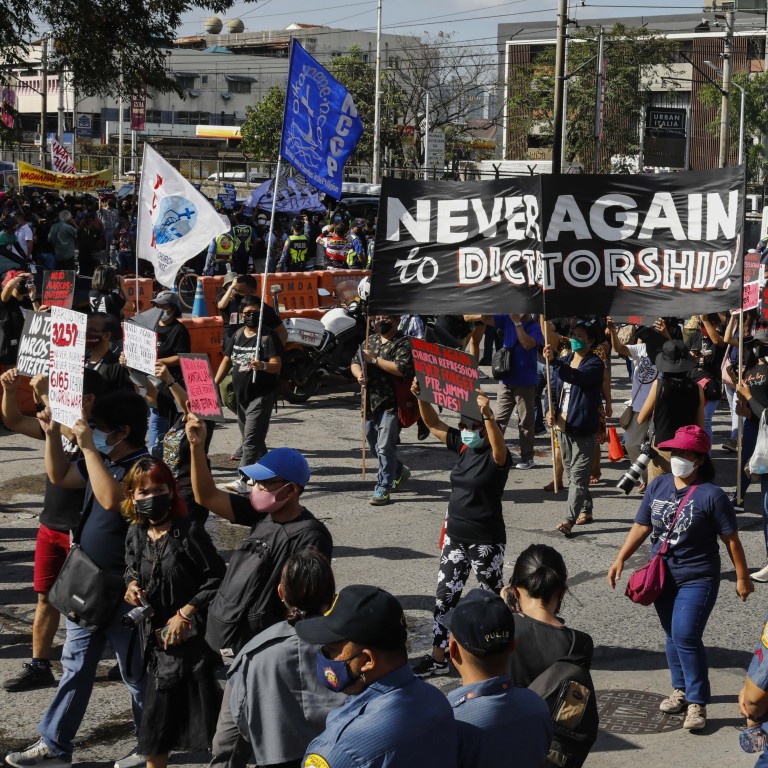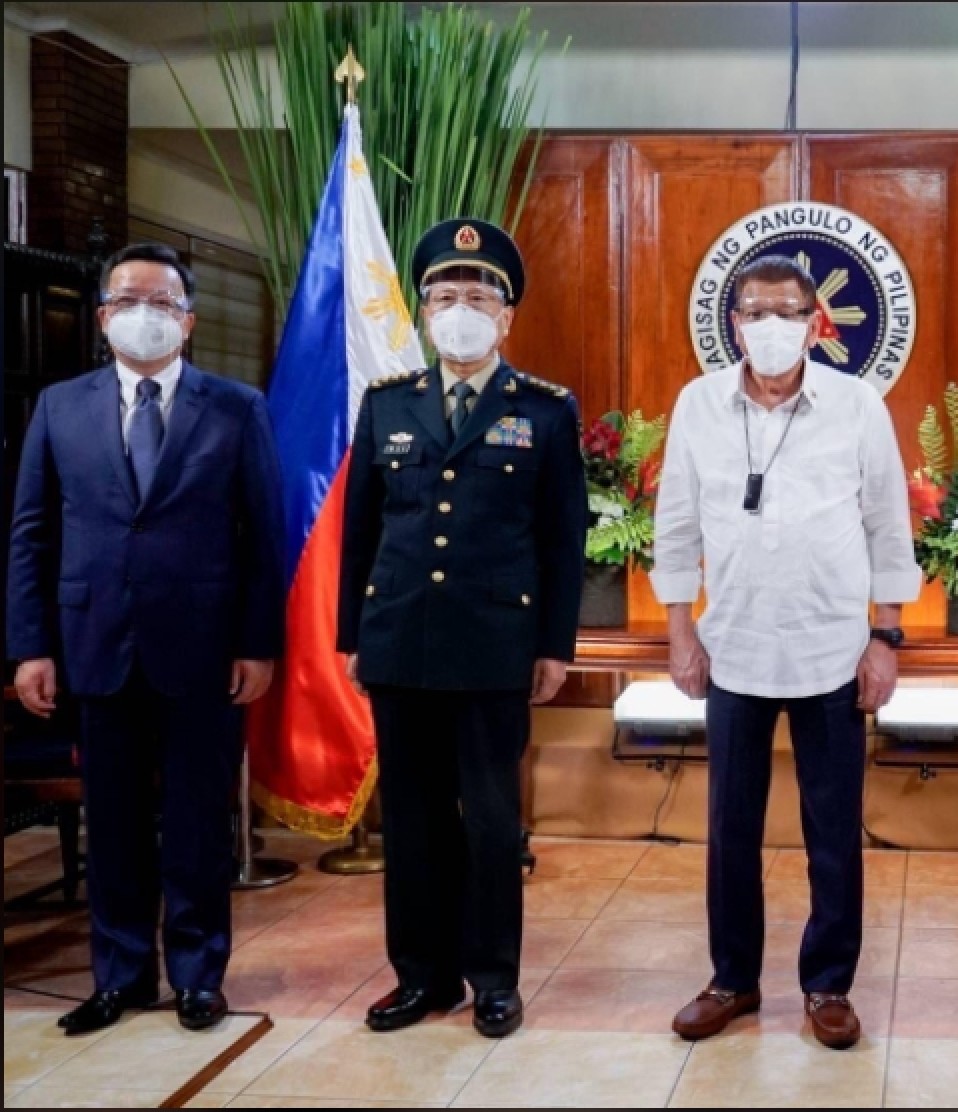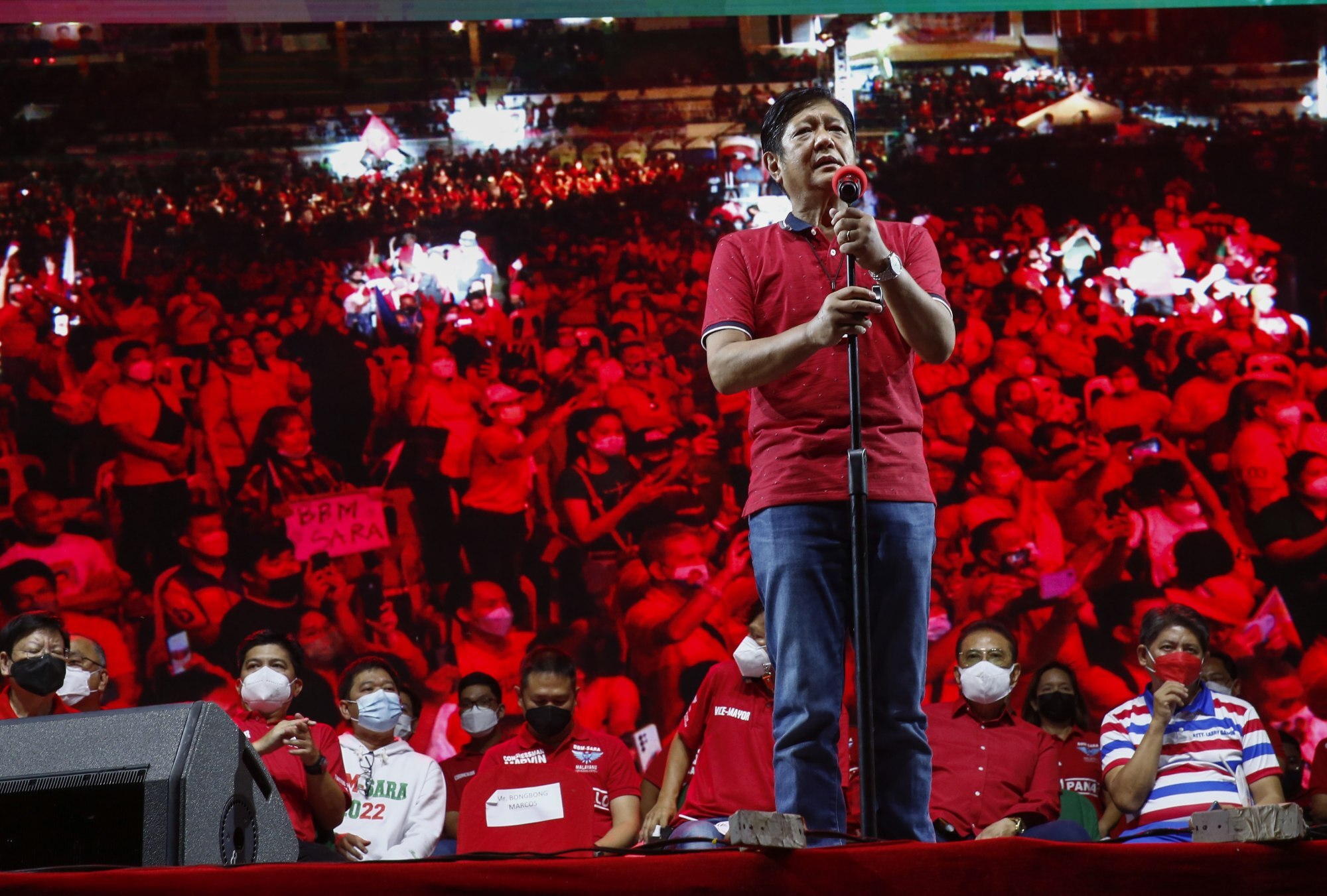
Philippine presidential election: envoy says China has no ‘preferred candidate’, will work with next leader
- Huang Xilian told a forum that China never interferes in the internal politics of other countries and ‘believes Filipinos have the wisdom to choose their own leader’
- He also called on the next administration to carry forward the strong ties established by outgoing President Duterte
“China never interferes in the internal politics of other countries and an election is the internal politics of the Philippines,” Huang Xilian said at a forum to celebrate the 35th anniversary of the Philippine Association for Chinese Studies.
“We believe the Philippine people have the wisdom to choose their own leader.”
This term, for a politician used as a puppet by a foreign or hostile power, was made famous by a 1959 fictional Cold War thriller in which the son of an American political family returns from service in the Korean war having been brainwashed by Chinese and Russian communists.
Who’s who in Philippine presidential election, and their China policies
Huang also told the Manila-based think tank’s gathering that China-Philippines ties have deepened in the past five years.
The Chinese embassy, particularly under Huang, has been widely perceived to be close to Ferdinand “Bongbong” Marcos Jnr, the front runner in the contest.

Last October, the envoy and Marcos Jnr jointly inaugurated at the embassy a photo exhibition celebrating the history of the two countries’ relations.
On the diplomatic front, Huang took a swipe at “some countries” that were pursuing an Indo-Pacific strategy, saying the move is to “force states in the region to contain China and it strongly opposes this effort.”
Addressing the same event, Chito Sta Romana, the Philippine ambassador to Beijing, said it would be a “wise choice for the next president to continue the path of engagement with China on the basis of friendly cooperation and mutual benefit.”
Philippine presidential front runner ducks South China Sea issue
Sta Romana, however, offered a word of caution for the next administration. “Going forward, what serves as our compass is our national interest, as embodied in the Philippine Constitution and international law,” he said.
“It is our country’s key interest to create and uphold policies that defend our sovereignty and patrimony in the West Philippine Sea,” the diplomat said, using a term to describe the eastern parts of the South China Sea that are within Manila’s exclusive economic zone and territorial waters.

Both envoys agreed that any differences between the two nations can be solved amicably.
Sta Romana said “we do not regard these differences as the sum total of Philippine relations” while Huang expressed confidence that disagreements will be settled through friendly consultations.
“Close neighbours are better than distant relatives,” he added.

